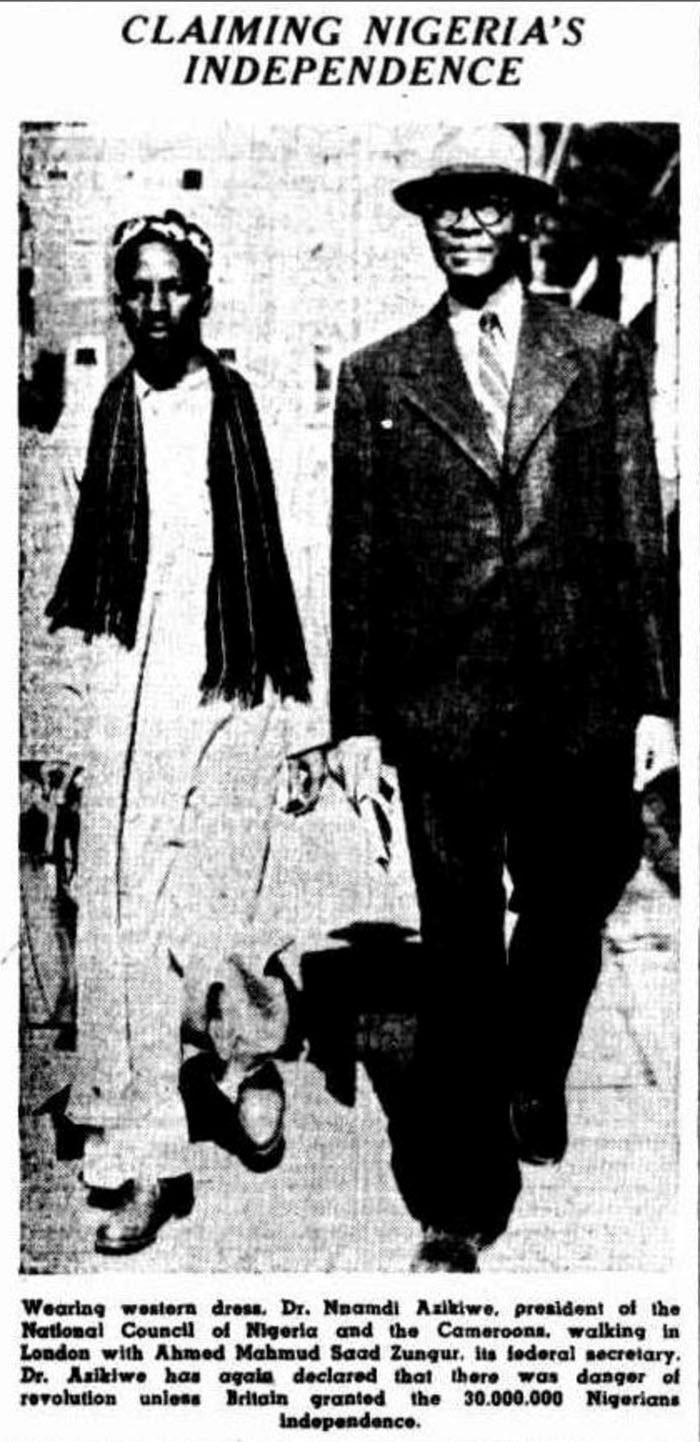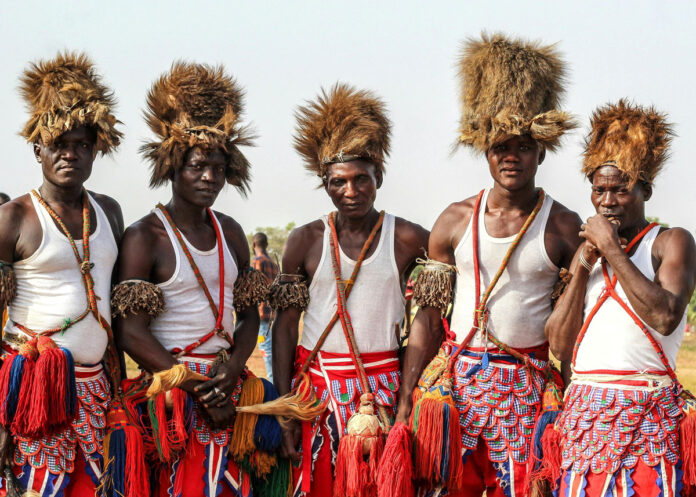Early History and Pre-Frontier Time
Antiquated Civilizations and Early Occupants
Nigeria’s set of experiences traces all the way back to ancient times, with proof of human residence as soon as 9000 BCE. The district currently known as Nigeria has seen different old human advancements, for example, the Nok culture, which flourished around 1000 BCE to 300 CE. The Nok public are eminent for their earthenware models and early iron-purifying innovation, which checked huge mechanical and social headways.
Rise of Realms and Domains
Between the seventh and nineteenth hundreds of years, a few strong realms and domains arose in Nigeria. Among the most unmistakable were the Yoruba realms (counting Ile-Ife and Oyo), the Hausa city-states, and the Kanem-Bornu Domain.
Yoruba Realms
The Yoruba human advancement is one of the most established and most complex in Nigeria, with Ile-Ife thought about the otherworldly and social heartland. As per Yoruba folklore, Ile-Ife is the origin of humankind. The Oyo Realm, laid out in the fourteenth 100 years, turned into a prevailing power in the locale through military ability and vital exchange partnerships.
Hausa City-States
The Hausa states, like Kano, Katsina, and Zaria, created between the ninth and fifteenth hundreds of years. These city-states were known for their intricate social designs, clamoring markets, and strongholds. They were critical exchange places, connecting the trans-Saharan shipping lanes with the remainder of West Africa.
Kanem-Bornu Domain
The Kanem-Bornu Domain, situated around Lake Chad, was a strong state from the ninth to nineteenth hundreds of years. It was an Islamic domain known for its tactical strength and social accomplishments, including the advancement of Islamic grant and exchange.
Pioneer Time and the Scramble for Africa
European Contact and Starting Impact
European contact with Nigeria started in the late fifteenth 100 years with the appearance of Portuguese adventurers. Throughout the following couple of hundreds of years, other European powers, including the English, French, and Dutch, laid out exchange relations, principally centered around the transoceanic slave exchange. The beach front locales of Nigeria became significant centers for the exportation of oppressed Africans, with unmistakable slave ports like Lagos and Calabar.
English Colonization
By the mid-nineteenth 100 years, English impact in Nigeria extended past exchange. The English tried to control the district to take advantage of its assets and vital area. The perfection of English royal aspirations brought about the Berlin Gathering of 1884-1885, where European powers apportioned Africa. Nigeria fell under English control.
Lagos State and Protectorate of Southern Nigeria
In 1861, Lagos was attached by the English and proclaimed a province. By 1900, the English had combined their command over the southern domains, framing the Protectorate of Southern Nigeria.
Protectorate of Northern Nigeria
In the north, the English utilized roundabout rule, utilizing existing customary designs to oversee the district. The Sokoto Caliphate, a strong Islamic state laid out in the mid nineteenth 100 years, was brought under English control by 1903.
Mixture of 1914
In 1914, the English amalgamated the Northern and Southern Protectorates, alongside the Lagos Settlement, to shape the State and Protectorate of Nigeria. This unification was driven by managerial comfort and financial contemplation yet made a mind boggling and various substance with various ethnic gatherings and dialects.
Battle for Autonomy
Ascent of Patriotism
The mid twentieth century saw the ascent of Nigerian patriotism, driven by taught elites who looked for more noteworthy political support and self-administration. Noticeable figures, for example, Herbert Macaulay, known as the dad of Nigerian patriotism, assumed pivotal parts in preparing general assessment contrary to frontier rule.
Political Developments and Gatherings
The post-The Second Great War time frame denoted a huge expansion in political action. The foundation of ideological groups like the Public Board of Nigeria and the Cameroons (NCNC), drove by Nnamdi Azikiwe, the Activity Gathering (AG) drove by Obafemi Awolowo, and the Northern Nation’s Congress (NPC) drove by Ahmadu Bello, mirrored the developing interest for self-rule.

Protected Improvements
A progression of established changes during the 1940s and 1950s continuously extended Nigerian cooperation in administration. The Richards Constitution (1946) and the Macpherson Constitution (1951) presented local independence and a government structure, individually.
Autonomy Accomplished
Nigeria’s persistent push for freedom finished on October 1, 1960, when the nation turned into a sovereign country. Nnamdi Azikiwe turned into Nigeria’s most memorable Lead representative General, and later, its most memorable President when Nigeria turned into a republic in 1963.

Post-Freedom Difficulties
First Republic and Political Precariousness
Nigeria’s Most memorable Republic (1963-1966) was described by critical political struggle. Ethnic strains, territorial competitions, and defilement tormented the youthful country. The parliamentary framework attempted to keep up with soundness, prompting a progression of emergencies.
Military Overthrow of 1966
The Principal Republic reached a sudden conclusion with a tactical overthrow in January 1966, drove by Significant General Johnson Aguiyi-Ironsi. This upset was before long followed by a counter-overthrow in July 1966, carrying Lieutenant Colonel Yakubu Gowon to control.
Nigerian Nationwide conflict (1967-1970)
Quite possibly of the most awful occasion in Nigeria’s set of experiences was the Nigerian Nationwide conflict, otherwise called the Biafran War. The eastern locale, overwhelmingly Igbo, announced autonomy as the Republic of Biafra under Colonel Odumegwu Ojukwu in 1967, refering to ethnic mistreatment and financial minimization.
Struggle and Philanthropic Emergency
The conflict, which went on until 1970, brought about a staggering helpful emergency, with boundless starvation and a large number of passings. The Nigerian government, drove by Gowon, eventually prevailed with regards to reintegrating Biafra, advancing a strategy of “no victor, no vanquished” to cultivate public compromise.
Military Rule and the Journey for A vote based system
Series of Military Systems
Post-war Nigeria saw a progression of military systems, each wrestling with defilement, financial difficulties, and requests for democratization.
Gowon’s System (1966-1975)
Gowon’s administration centered around recreation and improvement however was ousted in a bloodless upset in 1975 because of charges of debasement and shortcoming.
Murtala Mohammed and Olusegun Obasanjo (1975-1979)
General Murtala Mohammed started critical changes yet was killed in 1976. His replacement, General Olusegun Obasanjo, proceeded with these changes and gave over capacity to a regular citizen government in 1979, denoting the beginning of the Subsequent Republic.
Second Republic and Another Tactical Interference
The Subsequent Republic (1979-1983) under President Shehu Shagari was fleeting, damaged by monetary hardships and charges of electing misrepresentation. In December 1983, the military, drove by Significant General Muhammadu Buhari, held onto power.
Buhari’s System (1983-1985)
Buhari’s system was described by a severe enemy of defilement crusade yet was censured for denials of basic freedoms and constraint. He was removed in an upset drove by Broad Ibrahim Babangida in 1985.
Babangida’s System (1985-1993)
Babangida guaranteed political changes and monetary advancement however repealed the 1993 official races, broadly viewed as free and fair, prompting monstrous fights and turmoil.
SaniAbacha and the Re-visitation of Non military personnel Rule
General Sani Abacha’s system (1993-1998) was set apart by extreme suppression, denials of basic freedoms, and uncontrolled debasement. His unexpected passing in 1998 made ready for a momentary government under Broad Abdulsalami Abubakar, who started the most common way of returning Nigeria to regular citizen rule.
Fourth Republic: In 1999, Nigeria progressed to non military personnel rule with the appointment of Olusegun Obasanjo as President, denoting the start of the Fourth Republic.
Contemporary Nigeria
Popularity based Solidification
Starting around 1999, Nigeria has taken critical steps in merging its majority rules system, in spite of continuous difficulties.
Financial Development and Difficulties
Nigeria has encountered times of monetary development, driven by its oil area. In any case, the economy stays powerless against variances in worldwide oil costs, and there are tenacious issues of destitution and imbalance.
Political Turns of events
The Fourth Republic has seen numerous tranquil exchanges of force, with races in 2003, 2007, 2011, 2015, and 2019. The 2015 political decision was especially prominent as it denoted the initial time an occupant president, Goodluck Jonathan, yielded rout to a resistance applicant, Muhammadu Buhari.
Security Issues
Nigeria keeps on confronting critical security challenges, remembering the Boko Haram uprising for the upper east, conflicts among ranchers and herders in the Center Belt, and aggressiveness in the Niger Delta.
Social and Social Dynamism
Nigeria is prestigious for its lively culture, various identities, and critical commitments to craftsmanship, writing, music, and film. The Nigerian entertainment world, Nollywood, is one of the biggest on the planet, and Nigerian creators like Chinua Achebe and Wole Soyinka have acquired global praise.
Future Possibilities
Nigeria’s future relies on resolving basic issues like administration, monetary expansion, framework improvement, and social attachment. The country’s young populace presents both an open door and a test, requiring interests in training and occupation creation to saddle their true capacity.





